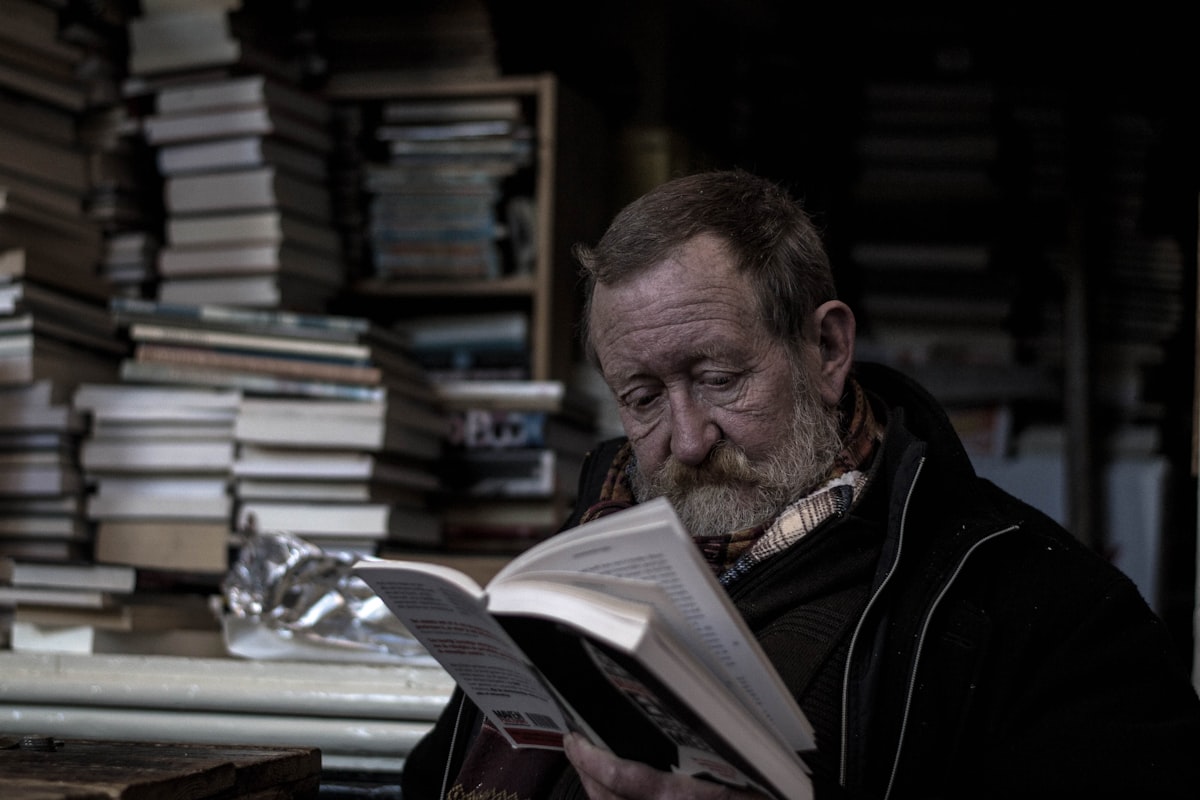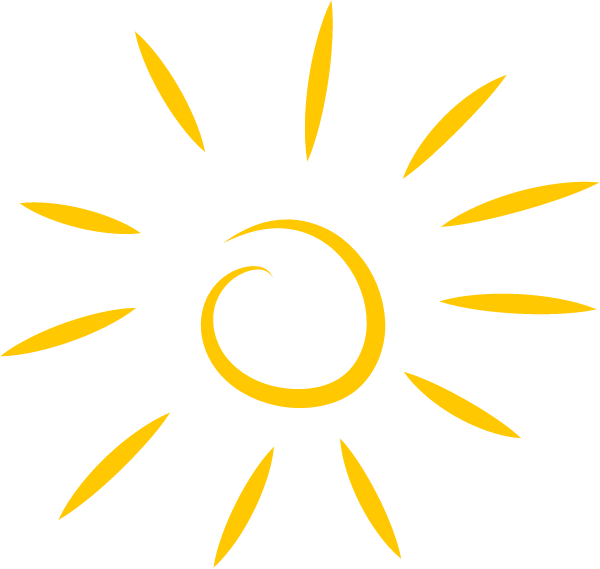Why Hemingway? - the ONE reason to read Ernest Hemingway's favorite books
Why read the favorite books of Ernest Hemingway?

/
p;[][]]pp]o[
;;m,. m77
This ![]() is NOT how I imagined to answer the "Why should you read Hemingway's favorite books?" question. This
is NOT how I imagined to answer the "Why should you read Hemingway's favorite books?" question. This ![]() is two-year-old Abraham's signature left on the blank screen having deleted everything I had written for this post. He climbed two shelves up to reach my computer that had this page left open and unsaved, why, because I was called urgently to do some mommy task. I'll leave it up here as the perfect illustration for this post, and frankly, for this online journal in its entirety.
is two-year-old Abraham's signature left on the blank screen having deleted everything I had written for this post. He climbed two shelves up to reach my computer that had this page left open and unsaved, why, because I was called urgently to do some mommy task. I'll leave it up here as the perfect illustration for this post, and frankly, for this online journal in its entirety.
For the above reason I'll be brief:
Why should anyone read Hemingway's fav books?
How do we decide which book to read next? Whose advice do we seek? Do we follow a bookstagrammer for the hottest stuff out there based on shared taste for a certain genre or do we ask our local librarian, our closest literature geek? Do we ask our neighbor? Our grandmother? A search engine?
If you are like me, you seek noone's advice.
Literature is literally the only topic I've never wished to hear anyone's opinion about, except for that one occasion when my first book got published. I don't care about what other people think is a must-read, important, hot or cool. For as long as I can remember, I picked books for myself from the library shelves and those of my ancestors. I picked and read The Collected Stories of Isaac Bashevis Singer at the age of 9 (I might have liked the cover) and the same year Thomas Hardy's Tess of the D'Urbervilles . When I finished the latter I ran to my mother shocked and frustrated:
Mama, but why is everyone so mean to the woman in this book?
If you read this brilliant novel, you remember how eloquently the rape scene is worded, that there is no way for a little girl to understand what happens to Tess in that forest during that boring nature description that she skim read.
I picked my books randomly. Every book that I started reading during my reading spree (between the age of 5-15) was fascinating to me, there was NONE that I put down or regretted to start. Insatiable curiousity gave me an appetite for life. My family didn't have a television at home. I knew one thousand and one Arabic tales but had no idea who Michael Jackson was of whom my classmates kept talking.
I was possibly one of the most well-read Hungarian 10-year-olds, truly. I didn't meet my classmates to hang out after school. I didn't watch TV. I hardly did anything else than reading books. I did spit on the red wall of the elevator of our project building with tears in my eyes when I saw my monogram "DM" (Donath Mirjam) painted on it with a crown on the top of the initials, certain that someone was mocking me. I had no idea of the existence of a music band somewhere in Great Britain with the name Depeche Mode.
If you are like me, you don't need any tips for what to read.
Yet, if you are like me, you might be curious of what great books you might have missed. You might be curious what THE BEST STORIES of all time are, and you might be looking for the most trustworthy source for giving you directions.
The most trustworthy sources on the greatest stories of all time are the authors whose art have long survived them.
I start with Hemingway's list NOT because he is one of my favorite authors but because he had a special power few people know about:
"Hemingway is the one who had the most to do with my craft — not simply for his books, but for his astounding knowledge of the aspect of craftsmanship in the science of writing.”
(Gabriel García Márquez)
Ernest Hemingway, first and foremost, was a scientist of literature. I don't know of any other writer who was as obsessed with figuring out how the craft must be done for perfection as he was - although the fact that I don't, doesn't mean anything. While he might not have been the only literary scientist, he was certainly the most entertaining one.
Hemingway's non-fiction, his memoir and voluminous correspondence are not only thoroughly informative regarding anything literature. When he talks writing he is hilarious. Marquez thought that Hemingway's strongest genre was the short story. But it is the journal. His masterpieces were his short stories but his most personal writings were his letters and the only time he combined his art with his non-fiction was when he wrote A Moveable Feast, a book I highly recommend for literature geeks.
Hemingway did not only think constantly about the science of writing, he also thoroughly documented his findings and created a few lists of the works that he found the most challenging to "beat" or, as Marquez put it, "break down to their essential parts and then put them back together after understanding the mysteries of their personal clockworks."
When Marquez says that Hemingway is the scientist of writing, then Marquez is the wise librarian who suggests Hemingway is THE dude to follow.
Naturally, Marquez is not a librarian but another dude to follow with his own list of the best books of all time.
I am interested in Marquez' reading list too. I'm interested in every brilliant writers' lists of their favorite books.
As long as there is written proof of them, I compile the favorite books of the dudes to follow and grow our online bookshelf here this way too.
Why do I read the favorite books of Ernest Hemingway?
THe answer above ![]() was written by a mother of two whose favorite activities in the world are incompatible with parenthood and, quite frankly, with wifehood too: reading and writing and swimming just are.
was written by a mother of two whose favorite activities in the world are incompatible with parenthood and, quite frankly, with wifehood too: reading and writing and swimming just are.
My husband once came back sad from a trip to his motherland, Brazil. He told me about a conversation with his family members during which he was asked about me, about the hobbies I have, the activities I do for happiness. He told me that he couldn't tell them that I loved dancing, nor that I was fond of great food or fashion-shopping. He couldn't list any activities his people could have related to. "I was too embarrassed to tell them," he said, "that my wife's favorite pastime is to be alone."
I haven't fully given up on my favorite activities when I became a mother but I almost fully gave up on them. It's been the fifth year of motherhood and while I only have two little ones to take care of, for the last few years I could hardly ever swim, read and write, which is by no means to say that I blame my family for that.
During the first year of motherhood I was able to keep freelancing as a journalist. During the second year I wrote a non-fiction book while pregnant with my second kid. But not long after baby No.2 arrived, something broke inside of me and remains to be broken. Whatever it is, my spirit, stamina or self-love, the part of my brain responsible for time management, focus and mental strength broke down with it.
When I have a few kid-free moments, I often cuddle with hubby watching a movie in the company of hallach brad and a big bottle of Nutella as opposed to sit by myself on the balcony with a book. Do that too, occasionally, but I don't read as frequently as I brush my teeth or wash our dishes. And that's a problem if I feel that my "home", as Elizabeth Gilbert put it nicely, is writing. That is a problem because I started to feel depressed. It's not the "why-even-get-out-of-bed" kind of depression but the "another-day-with-zero-chance-to-do-what-makes-me-feel-alive" kind.
Then in January, 2020, two months before the corona pandemic swept the world and the dreams of many stay-at-home mothers who were about to return to the job market, I created a READING and a WRITING challenge to force myself to do regularly what I love doing the most. "Forcing" sounds funny: I decided to push myself harder and started to document the process.
Why do I read the favorite books of Hemingway?
-
I want to have the best of time. I want others to have the best of time too, so I check out Hemingway's recommendations, see if they are still valid today, and report my experience here.
-
I want to find out why these particular books taught Hemingway the most about the craft of writing.
Sometimes it's impossible to break a piece of art down to its essential parts - Marquez mentioned Faulkner as an example, who
doesn't seem to have an organic system of writing, but instead walks blindly through his biblical universe, like a herd of goats loosed in a shop full of crystal. Managing to dismantle a page of his, one has the impression of springs and screws left over, that it's impossible to put back together in its original state.
"Horseshit" - Hemingway would react to this. He had his own opinion on Faulkner's art:
I enjoy reading [FAULKNER] when he is good but always feel like hell that he is not better. I wish him luck and he needs it because he has the one great and un-curable defect; you can't re-read him. When you re-read him you are conscious all the time of how he fooled you in the first time. In truly good writing no matter how many times you read it you do not know how it is done. That is because there is a mystery in all great writing and that mystery doesn't dis-sect out. It continues and it is always valid. Each time you re-read you see or learn something new.
(To Harvey Breit, American poet and critic, in 1952)
I wish to see some of those "screws" that Marquez mentioned clearly enough to be able to understand the magic tricks of the greatest writers, but Hemingway said that there were no tricks. The beauty in Hemingway's scientific studies is his conclusion:
"You had to do it from inside yourself. There wasn't any trick. (...) You could do it if you would fight it out. If you'd lived right with your eyes."
(Ernest Hemingway: On Writing, The Nick Adams Stories)
As a kid I was fascinated with the idea that I heard from my parents that there are only two types of great artists: those who are masters of the craft and then there are the magicians.
Ernest Hemingway was obsessed with the magicians of literature. I take his advice on which book to read seriously. I might not even want to see any screws at all. I want my entire reading experience to be pure magic and mystery.
Let's get to it.
